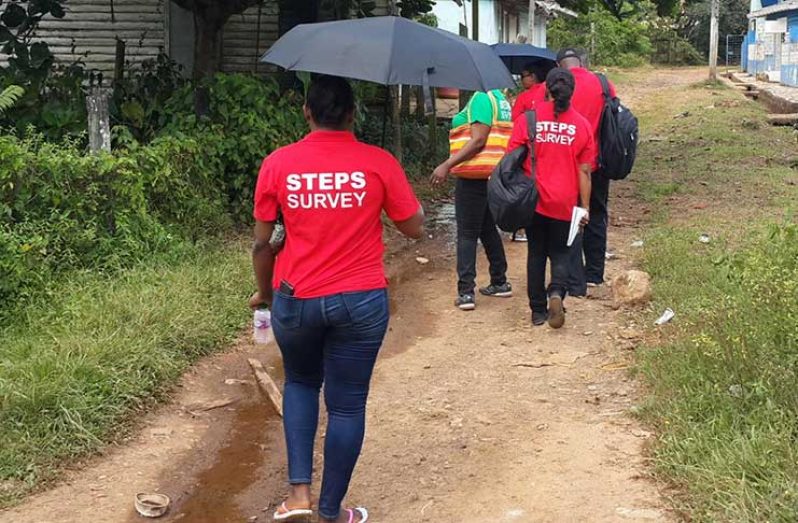-country lacks adequate resources to monitor tobacco use
THE Global Youth Tobacco Survey (GYTS) has revealed that the occurrence of smoking among youths is increasing in Guyana and it is projected that this will translate to higher prevalence in adulthood.
A statement from the Ministry of Public Health pointed out that numerous studies have shown that if a child does not initiate smoking before the age of 15 years, they will most likely never develop the habit throughout the course of their lives.
In 2000, Guyana conducted its first round of the GYTS, which was the first nationally representative study on tobacco use among adolescents. Guyana is reportedly one of only a few countries in the Americas to have completed four rounds of the GYTS.
“Tobacco monitoring in Guyana however dates back to more than 20 years, when its early tobacco control legislation included tobacco use surveillance and reporting provisions for second-hand smoke exposure,” stated the ministry in its press statement.
Reporting of second-hand smoke exposure has been required since the implementation of the Sanitation and Safety Acts No. 1 1996 and No. 32 1997, which both mandated quarterly reporting on second-hand smoke exposure in workplaces.
LACKING RESOURCES
Guyana nonetheless continues to experience challenges in finding adequate resources for tobacco-use monitoring. According to the press statement, most tobacco- surveillance data are currently collected through surveys, which are costly and difficult to sustain.
In 2016, the country however received support from the World Health Organisation (WHO) through the Step Wise approach to Non-Communicable Disease (NCD) risk factor surveillance (STEPS), which was conducted for the first time in Guyana and included a component on tobacco control.
It was stated that the survey sought to generate data on NCD risk factors and for the first time present data on tobacco use among adults aged 18-69 years. A full report on the findings of this survey is expected to be available by September 2017.
Although it is a major plus for Guyana, the Ministry of Public Health said, it only serves to highlight the importance in implementing tobacco control regulations quickly.
Guyana was amongst the first to ratify the WHO –Framework Convention on Tobacco Control (FCTC), to date, the revised legislation is still pending passage in the National Assembly.
“The findings of the national tobacco surveillance efforts in Guyana have implored policy-makers and other stakeholders to use the findings and advocate for stronger action in tobacco control measures, such as ensuring the passage of the Tobacco Control Act,” stated the ministry.
It is recommended that the country ensure periodic implementation of surveys, under the Global Tobacco Surveillance System, is conducted and that the data for key tobacco use indicators are included in the country’s national surveillance database.
Tobacco remains the single legal leading cause of death worldwide, accounting for more than 6 million deaths annually, of which 600,000 are from second and third-hand smoking.
The lack of a comprehensive national cancer prevention and control plan in Guyana would suggest that policy-makers seek alternative cost-effective methods in reducing the burden that tobacco places on the health care sector. Moreover, cancer is the fourth leading cause of premature mortality in Guyana, with lung cancer sitting at fourth position among the leading types of cancers.




.jpg)









